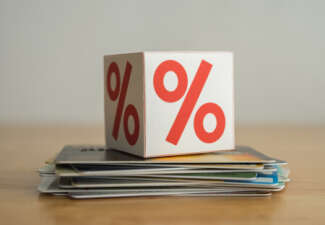The content on this page is accurate as of the posting date; however, some of the offers mentioned may have expired.
This is a great question. In fact, there has been a shift in recent years as to what is considered "excellent" credit. You have probably heard about banks tightening their underwriting practices or implementing stricter lending standards which mean that you have to have a higher credit score nowadays than ever before to fall into the category of having excellent credit and, as a result, qualifying for the prime interest rates on loans and other banking products.
FICO scores range from 300† to 850†, with the higher numbers being the more desirable ones. Several years back during the American housing boom, if you were to apply for a bank or mortgage loan with a credit score around 720† or higher you would find it easy to be approved by the bank and get a fantastic rate. While there was the possibility of qualifying for the same financial product with a lower FICO score, you would not have been granted the best available interest rate.
However, the world has changed. Currently, in today's post-recession economic climate, it takes more to have an excellent credit score than it used to. Many experts now estimate an excellent credit score by today's definition to be a FICO score of 750† or higher. If you fall into that range you will likely find no obstacles in your path to loan approval, and you will stand a very good chance of receiving an offer of the lender's best rate.
You may now be wondering how you can get there if your score is below the 750† mark. The biggest incentive for boosting your credit score into the excellent range is the amount of money you will save in the long run in terms of interest if you are looking to apply for a mortgage, auto loan or other bank loan in the immediate future. With a bit of persistence and discipline, it is possible for anyone to increase their credit score.
While there are several influential factors that affect your FICO score, two are of the utmost importance - 1) the timely payment of all bills, and 2) the reduction of your overall debt load.
Establishing a consistent history of on-time payments for all of your bills - credit cards, rent, car payments, etc. - is the best thing you can possibly do for your credit score.
The other key factor that goes into determining your credit score is something called your credit utilization ratio, or in other words the combined balance of all of the debt you have on your credit cards divided by the combined credit limits of the same cards. The lower your credit utilization ratio, the better your credit score will be. If your goal is to have a score in the excellent range, you may want to target having a utilization rate of 10% or under. The way to do this is to pay down your credit card debt and keep it low.






